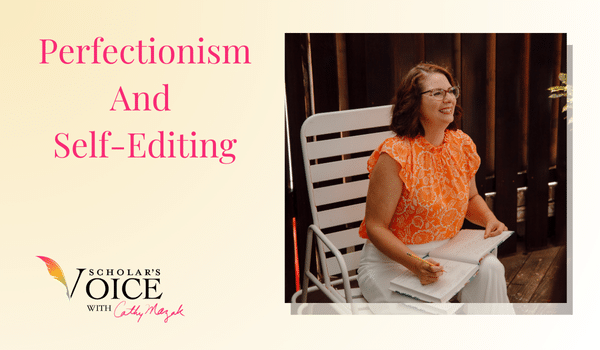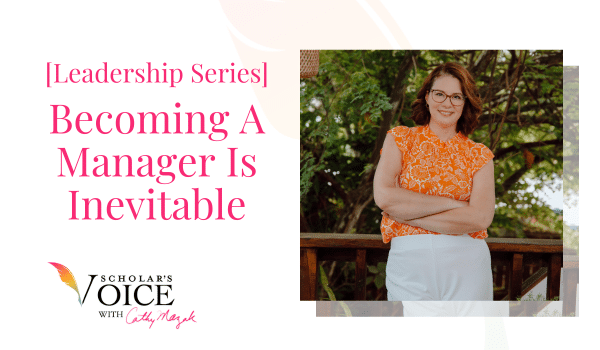Perfectionism And Self-Editing

Today, I am spotlighting a problem so many academics cite as the reason they are delayed in submitting articles or books for publication: perfectionism and self-editing. Specifically, I am addressing the writing stage, where the project is nearly done, but something beyond formatting or copyediting is holding you back from submitting it for review.
MORE DETAILS
First, I explore the top three reasons academics find themselves caught in the cycle of perfectionism and self-editing. Then, I encourage you to lower your internal bar and recognize how the excessively high, self-imposed standards academics often set for themselves can hinder publication. Finally, I underline the necessity of feedback and why your aim should be repetition, not perfection.
If your struggle to release work is clogging your publication pipeline, this episode is for you! Tune in to learn how to let go and escape the trap of perfectionism and self-editing.
Why We Fall Into the Trap
There are three common reasons academics fall into the trap of perfectionism and self-editing. Each holds back the publication process by hindering submission.
- You’re looking for permission to let work go because of the pervasive permission-seeking culture of academia.
- You fear being canceled because of the controversial subject matter or field your paper addresses.
- Your internal bar is raised too high, and the paper never meets this self-imposed standard.
The Argument for Lowering the Internal Bar
As an academic, your publication goal should be reps, not perfection. Embrace the freedom of not being bound by the need for a flawless paper. Too often, scholars get stuck in a cycle of editing and revising because they want to submit work that gets minimal feedback.
Myth: The more perfect the paper, the fewer corrections it will need, and reviewers will hold your work in higher regard. Lowering your standards for submission increases the number of publications you complete. You enter a cycle of submit, feedback, submit, and feedback. The more feedback you receive, the better you become at managing and responding to it.
Result: You write more, you integrate feedback faster, and get work published.
“As an academic writer, one of your goals is reps. Repetitions in the sense of when you are lifting weights and you are trying to do a certain number of reps. Doing lots of reps is going to get you better at writing. As an academic, scholarly writer, you need reps and what that means is that you have to lower your internal bar.”
“There is a super big benefit in terms of your future speed of getting published by making it your goal to submit more things. I’m arguing that you will be increasing the quality of your writing. The more reps and more feedback you get, the more you learn to deal with the feedback and the more you learn to incorporate feedback.”
We’ve opened the waitlist for our next cohort of Navigate: Your Writing Roadmap®. Check out the program details and get on the waitlist here.
CONTINUE THE CONVERSATION:
- Our 12-week Navigate: Your Writing Roadmap® program helps tenure-track womxn and nonbinary professors to publish their backlog of papers so that their voice can have the impact they know is possible. Get on the waitlist here!
- Cathy’s book, Making Time to Write: How to Resist the Patriarchy and Take Control of Your Academic Career Through Writing is available in print! Learn how to build your career around your writing practice while shattering the myths of writing every day, accountability, and motivation, doing mindset work that’s going to reshape your writing, and changing academic culture one womxn and nonbinary professor at a time. Get your print copy today or order it for a friend here!
- Want to train with us for free on your campus? Now you can when you recommend our Scholar’s Voice™ Faculty Retreats to a decision-maker on your campus! Download the brochure with the retreat curriculum and both in-person and online retreat options here.
- If you would like to hear more from Cathy for free, please subscribe to the weekly newsletter, In the Pipeline, at scholarsvoice.org. It’s a newsletter that she personally writes that goes out once a week with writing and publication tips, strategies, inspiration, book reviews and more.
FOLLOW US ON SOCIAL:
RELATED PODCASTS
Stay current in Academic Publishing
Subscribe to our newsletter:
In the Pipeline
writing tips, publishing trends, reading recomendations, free workshops





